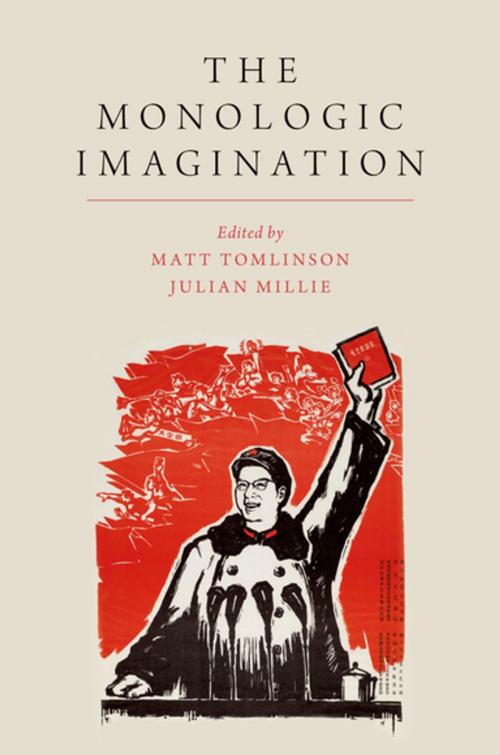The Monologic Imagination
Nonfiction, Reference & Language, Language Arts, Public Speaking, Linguistics| Author: | ISBN: | 9780190652838 | |
| Publisher: | Oxford University Press | Publication: | May 11, 2017 |
| Imprint: | Oxford University Press | Language: | English |
| Author: | |
| ISBN: | 9780190652838 |
| Publisher: | Oxford University Press |
| Publication: | May 11, 2017 |
| Imprint: | Oxford University Press |
| Language: | English |
The pioneering and hugely influential work of Mikhail Bakhtin has led scholars in recent decades to see all discourse and social life as inherently "dialogical." No speaker speaks alone, because our words are always partly shaped by our interactions with others, past and future. Moreover, we never fashion ourselves entirely by ourselves, but always do so in concert with others. Bakhtin thus decisively reshaped modern understandings of language and subjectivity. And yet, the contributors to this volume argue that something is potentially overlooked with too close a focus on dialogism: many speakers, especially in charged political and religious contexts, work energetically at crafting monologues, single-voiced statements to which the only expected response is agreement or faithful replication. Drawing on ethnographic case studies from the United States, Iran, Cuba, Indonesia, Algeria, and Papua New Guinea, the authors argue that a focus on "the monologic imagination" gives us new insights into languages' political design and religious force, and deepens our understandings of the necessary interplay between monological and dialogical tendencies.
The pioneering and hugely influential work of Mikhail Bakhtin has led scholars in recent decades to see all discourse and social life as inherently "dialogical." No speaker speaks alone, because our words are always partly shaped by our interactions with others, past and future. Moreover, we never fashion ourselves entirely by ourselves, but always do so in concert with others. Bakhtin thus decisively reshaped modern understandings of language and subjectivity. And yet, the contributors to this volume argue that something is potentially overlooked with too close a focus on dialogism: many speakers, especially in charged political and religious contexts, work energetically at crafting monologues, single-voiced statements to which the only expected response is agreement or faithful replication. Drawing on ethnographic case studies from the United States, Iran, Cuba, Indonesia, Algeria, and Papua New Guinea, the authors argue that a focus on "the monologic imagination" gives us new insights into languages' political design and religious force, and deepens our understandings of the necessary interplay between monological and dialogical tendencies.















